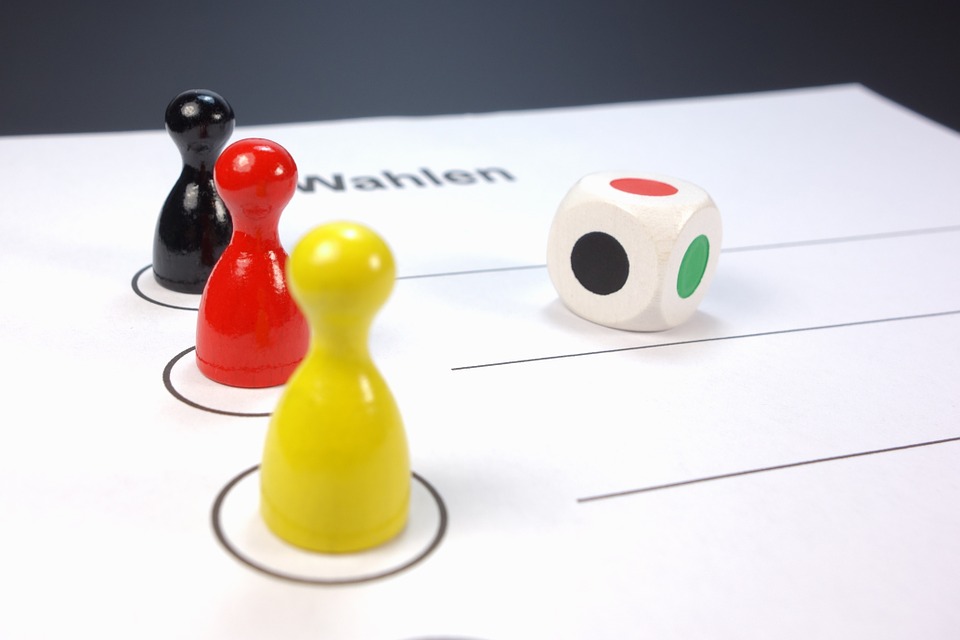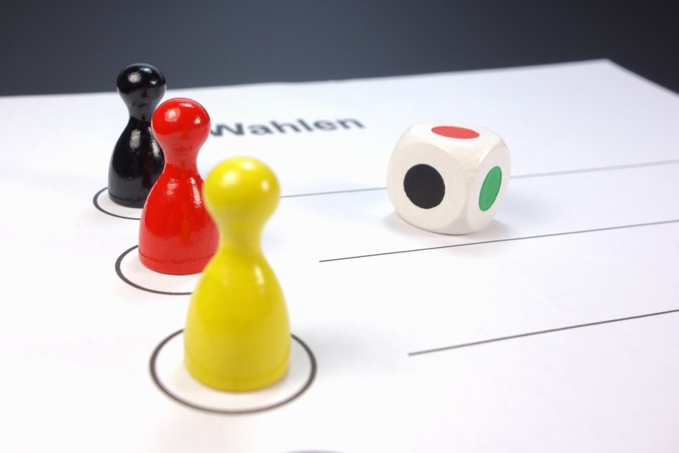The leaders of the center-right alliance of the CDU/CSU, Angela Merkel and Horst Seehofer, as well as the head of the SPD, Martin Schulz, officially made the first step to the possible formation of the ruling coalition. Particularly, they officially opened preliminary consultations on the coalition agreement. The details of the meeting - the exact composition of the participants and the agenda - were not advertised, but it is clear in advance that the negotiations are not going to be easy. The alliance has actually rejected the proposal of the SPD to negotiate not on all the key issues, but only on some of them (this could allow the Social Democrats to stay in the government and in the future to pursue their own legislative initiatives). The tense atmosphere, in which debates are starting, is evidenced by a harsh statement of Horst Seehofer, who called the proposal of the Social Democrats a "kindergarten."
Angela Merkel and Martin Schulz officially announced readiness for coalition negotiations in early December, after they received the green light from the members of the CDU board and from the party congress of the Social Democratic Party of Germany (SPD). At the same time, both major parties of the country took such a step not entirely voluntarily. For Christian democrats, such cooperation means the need to negotiate and cede ministerial portfolios not to "junior partner", but to a serious opponent. And for the Social Democrats, the latter participation in the ruling coalition (after the elections in 2013) turned out to be the worst result of the post-war time - 20.5% of the vote.
That is why within a quarter of an hour after the announcement of the results of the September elections, the Social Democrats announced transition to the opposition. However, the failure of the negotiations between the CDU/CSU alliance, the Green Party and the Free Democratic Party forced the SPD to make a concession. This is quite understandable since one of the former party leaders, and now German President Frank-Walter Steinmeier, pushed the Social Democrats to this decision in order to pacify the political crisis. Judging from the public readiness for dialogue, both "popular" parties like this way more than the minority government headed by Angela Merkel or new early elections, where the right and left centers would surely lose their votes. But even after returning to the negotiating table, the Social Democrats are now trying to demonstrate to their voters the maximum hardness of their positions.
As the Minister of Foreign Affairs, Social Democrat Sigmar Gabriel, warned, it is unlikely that "now, just to save a couple of jobs in the government, the party [the SPD] will immediately say: fine, we are ready to continue." "We should not go to the government at any cost," confirmed the party’s leader Martin Schulz. "The question is, what can we achieve, there will not be any automatism in this." In turn, the head of the Interior Ministry and one of the closest associates of Angela Merkel Thomas de Meziere is not ready to make significant concessions just for the sake of forming a government. "The SPD should not believe that we can agree with everything that it considers important," he hinted. In his view, now a multi-level system for coordinating decisions in the SPD will allow the politicians to form a government not earlier than March next year.
source: dw.de
Angela Merkel and Martin Schulz officially announced readiness for coalition negotiations in early December, after they received the green light from the members of the CDU board and from the party congress of the Social Democratic Party of Germany (SPD). At the same time, both major parties of the country took such a step not entirely voluntarily. For Christian democrats, such cooperation means the need to negotiate and cede ministerial portfolios not to "junior partner", but to a serious opponent. And for the Social Democrats, the latter participation in the ruling coalition (after the elections in 2013) turned out to be the worst result of the post-war time - 20.5% of the vote.
That is why within a quarter of an hour after the announcement of the results of the September elections, the Social Democrats announced transition to the opposition. However, the failure of the negotiations between the CDU/CSU alliance, the Green Party and the Free Democratic Party forced the SPD to make a concession. This is quite understandable since one of the former party leaders, and now German President Frank-Walter Steinmeier, pushed the Social Democrats to this decision in order to pacify the political crisis. Judging from the public readiness for dialogue, both "popular" parties like this way more than the minority government headed by Angela Merkel or new early elections, where the right and left centers would surely lose their votes. But even after returning to the negotiating table, the Social Democrats are now trying to demonstrate to their voters the maximum hardness of their positions.
As the Minister of Foreign Affairs, Social Democrat Sigmar Gabriel, warned, it is unlikely that "now, just to save a couple of jobs in the government, the party [the SPD] will immediately say: fine, we are ready to continue." "We should not go to the government at any cost," confirmed the party’s leader Martin Schulz. "The question is, what can we achieve, there will not be any automatism in this." In turn, the head of the Interior Ministry and one of the closest associates of Angela Merkel Thomas de Meziere is not ready to make significant concessions just for the sake of forming a government. "The SPD should not believe that we can agree with everything that it considers important," he hinted. In his view, now a multi-level system for coordinating decisions in the SPD will allow the politicians to form a government not earlier than March next year.
source: dw.de



















